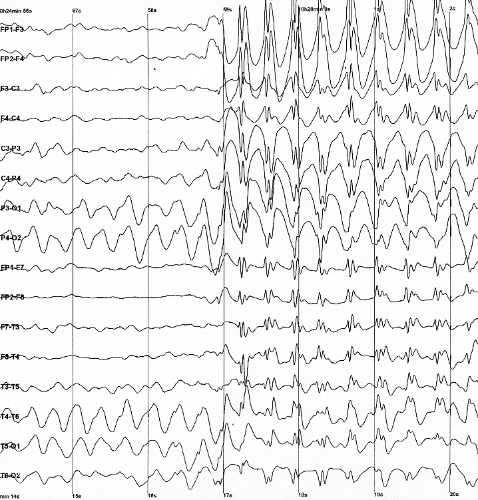Identification of the genetic causes of childhood epilepsy shows the way to improved treatment and care

Epilepsy is one of the most common chronic neurological diseases, affecting more than 50 million people worldwide. Although it is believed that a large proportion of childhood-onset epilepsies are caused by genetic changes, it remains unknown precisely how many of these patients suffer from a genetic disorder and how often the treatment can be targeted to their specific genetic alteration. Now, results from research to be presented at the annual conference of the European Society of Human Genetics today have shown a genetic cause for their condition among half of those studied. This will not only aid in the prescription of appropriate, tailored, treatments, but also preclude the use of unnecessary diagnostic procedures, say the investigators.
Dr. Allan Bayat, MD, a consultant in paediatric neurology at the Danish Epilepsy Centre, Dianalund, Denmark, and colleagues studied 290 children with a diagnosis of epilepsy or who presented with seizures accompanied by a high temperature that were either long, or in which consciousness was not regained between events (prolonged and clustering febrile seizures). The children were born between 2006-2011 and followed at the centre in 2015. After obtaining informed consent, the children underwent genetic testing. "We found a genetic cause in half of those tested and also that half of those again could receive a tailored treatment. We hope that drug companies and the scientific community will be able to produce new drugs or repurpose existing ones that may be being used to treat entirely unrelated conditions to improve precision treatment possibilities for those for whom this is currently not available," says Dr. Bayat.
In recent years, the number of genes known to be associated with epilepsies has risen to over 500, and gene panel testing and exome sequencing are now routine analyses in many countries. Such testing is most important in children whose seizures commence when they are under three years of age, or with a family history of seizures, brain malformations, or cognitive comorbidities. However, in many parts of the world genetic testing is not systematically offered to such people, and there is often a long delay between the onset of symptoms and the test. Our results show that genetic testing is crucial in such patients in order that they may receive appropriate counselling and treatment," Dr. Bayat says.
An additional advantage of being able to identify a genetic cause is the avoidance of potentially harmful treatments. Genetic sequencing has shown that the majority of monogenic epilepsies, in which a single genetic change is involved, are caused by changes in ion channels, membrane proteins that are abundant in the central nervous system. While some genetic changes reduce the function of ion channels, others increase them. Most anti-epileptic drugs currently available target and block these ion channels, so treatment with them in patients with symptoms cased by genetic changes that have already suppressed ion channel function would most likely do more harm than good.
The researchers intend to continue their work with further study of those individuals where they were unable to find a genetic explanation for their epilepsy. "We will re-evaluate the dataset obtained from exome sequencing at regular intervals and perform additional genetic testing with a method that can detect genetic changes that may be missed by exome sequencing. And we hope to explore whether these patients have an accumulation of risk variants in genes or pathways associated with epilepsy when compared to those where a genetic cause has been uncovered, and to controls.
"Getting a genetic diagnosis is of great importance for the children and the families. It provides an explanation and certainty, and it enables a more targeted genetic counseling, including knowledge about the prognosis and recurrence risk. Furthermore, it allows the subject and families to enter gene specific networks of families with the same genetic condition," Dr. Bayat concludes.
Chair of the ESHG conference, Professor Alexandre Reymond, Director of the Center for Integrative Genomics, University of Lausanne, Lausanne, Switzerland, said: "The field has made great progress in identifying causative mutations following the introduction of high-throughput sequencing in epilepsy patients. Despite the high occurrence of the disease and its high genetic heterogeneity with hundreds of associated genes, my colleagues can now suggest a tailor treatment to a quarter of their patients and counsel half of the families, a remarkable step forward for precision health."
More information: Abstract no: C25.6 Genetic testing and its impact on therapeutic decision making in childhood-onset epilepsies - a study in a tertiary referral centre

















